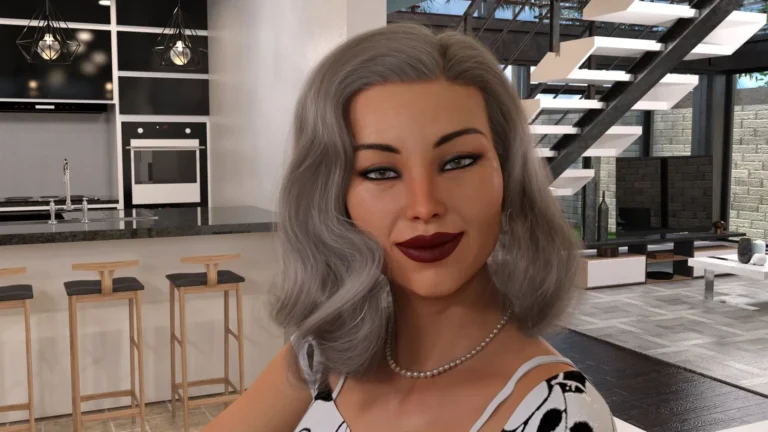
Grandma’s House
Play Grandma’s House
Grandma’s House review
Explore the unique gameplay, characters, and features of Grandma’s House
Grandma’s House is a distinctive adult-themed interactive game that blends storytelling with character-driven gameplay. This guide dives into the core aspects of Grandma’s House, highlighting its unique approach to relationship-building, character development, and immersive scenarios. Whether you’re curious about the gameplay mechanics or want to understand the characters better, this article offers a comprehensive look at what makes Grandma’s House stand out in its genre.
Understanding Grandma’s House: Gameplay and Mechanics
If you’re tired of games that rush you from one explosive set piece to the next, then the Grandma’s House gameplay is going to feel like a warm, comforting hug. This isn’t your typical narrative adventure; it’s a deliberate, thoughtful experience that asks you to slow down and genuinely connect with its world. I remember my first playthrough, expecting certain… adult game tropes, and being completely disarmed by its authenticity. Instead of quick rewards, the game invests in slow-paced adult game mechanics that prioritize emotional payoff over instant gratification. 🏡
The core loop is beautifully simple: you wake up at your grandmother’s house for a summer visit. Your goal isn’t to save the world, but to reconnect with family and maybe explore a spark with a charming neighbor. The magic lies in the details—brewing a pot of coffee, watering the plants, or simply choosing to sit on the porch and chat. This is the heart of interactive storytelling in Grandma’s House, where the smallest actions weave a rich, personal narrative.
### What Makes Grandma’s House Unique?
So, what truly sets this experience apart from other visual novels or dating sims? 🤔 It’s the developer’s unwavering commitment to pacing and immersion. Many games in this genre operate on a “three-date” rule, but Grandma’s House rejects that entirely. Relationships here unfold over in-game days and weeks, mirroring the awkward, sweet, and gradual way real connections are built.
The game’s philosophy is clear: meaningful interaction cannot be rushed. You can’t just spam a character with gifts or always pick the “flirt” option. Sometimes, the best choice is to give someone space or talk about something mundane. This approach makes every breakthrough moment feel earned. I’ll never forget the time I finally got Polly to open up about her art after days of casual chats; it felt like a real achievement, not just a checked box on a quest log. This deliberate pace is what makes it a standout slow-paced adult game that focuses on character depth.
### Character Interaction and Relationship Building
The soul of this experience lies with the Grandma’s House characters. They aren’t just archetypes waiting for your attention; they feel like real people with their own schedules, moods, and personal journeys. Your grandmother, Allie (though you’ll call her Nana), is the anchor—a kind, observant presence who loves her garden and her family. Then there’s Polly, the creative and somewhat reserved girl next door, and other characters who each bring their own unique dynamic to the house.
Interacting with them is the core of the Grandma’s House relationship system. It’s not just about dialogue trees; it’s about trust building in Grandma’s House. This isn’t a visible meter you max out. Trust is demonstrated through the characters’ behaviors: they share more personal stories, invite you into their private spaces, and their body language becomes more open and relaxed. A character might initially give short, polite answers, but as trust grows, they’ll seek you out for conversations.
Pro Tip: Pay attention to the time of day and a character’s location. You’ll often find more meaningful, private conversations available in the evening on the porch or in the kitchen rather than during a busy afternoon.
The following table breaks down how these trust levels generally manifest and influence your story:
| Trust Level | Character Behavior | Impact on Game Progression |
|---|---|---|
| Acquaintance | Polite, surface-level conversations. They stick to safe topics. | Access to basic story branches and character introductions. |
| Growing Friendship | They start asking you questions about your life and share minor worries or excitements. | Unlocks new activities (e.g., being invited to sketch in the garden with Polly). Deeper dialogue choices become available. |
| Close Bond | Characters confide their deeper fears, dreams, and secrets. They initiate physical contact like hugs. | Access to the most intimate and pivotal story scenes. Your choices here have the most significant impact on their ending. |
This system ensures that every relationship feels unique and personally built by you, the player. ❤️
### Game Progression and Player Choices
How you navigate your days is the engine of Grandma’s House gameplay. You have a limited amount of energy and time each day, forcing you to make conscious decisions. Will you help Nana with her gardening, knowing it makes her happy? Or will you see if Polly is down at the creek? This time management aspect makes your Grandma’s House player choices feel weighty and personal.
There are no “right” or “wrong” answers, only choices that lead to different outcomes. The game is fantastic at making you live with the consequences of small decisions. For example, if you consistently choose to sleep in, you might miss a morning interaction with a character that was crucial to understanding their current emotional state.
Example of a player choice affecting relationship outcomes:
Early on, Polly might mention she’s nervous about an upcoming art show. You have a few options:
* Choice A (Encouraging): “You’re incredibly talented. I know you’ll blow them away.”
* Choice B (Practical): “Do you want to practice your presentation with me?”
* Choice C (Self-Centered): “That sounds stressful. Want to forget about it and go for a walk?”
While none of these are “game over” choices, they send a clear signal. Choice A is kind but vague. Choice B shows active support and investment in her passion. Choice C, while offering a distraction, dismisses her anxiety. Choosing B might lead to a unique practice session scene later, deepening your bond significantly. Choosing C might still be fun, but it could slightly slow the progression of her personal story arc. This is the nuance of Grandma’s House player choices—they define not just your romance, but your role in everyone’s life.
The Grandma’s House relationship system is woven directly into this progression. You can’t speed-run connections. If you ignore a character for several days, the relationship won’t magically stay warm; you might have to rebuild a bit of familiarity. This creates an incredibly realistic and immersive flow where the story truly feels like it’s being written by your actions, one careful choice at a time. ✨
Ultimately, Grandma’s House is a masterclass in patient, meaningful interactive storytelling. It proves that the most compelling drama doesn’t need a world-ending threat—it can be found in a shared cup of coffee, a quiet conversation under the stars, and the slow, beautiful process of building trust and love.
Grandma’s House offers a unique blend of storytelling and interactive gameplay that emphasizes patience and character depth. Its approach to relationship-building and player choice creates a rich experience that goes beyond typical adult games. Whether you’re new or returning, understanding the game’s mechanics and characters enhances your engagement and enjoyment. Dive in, explore the nuances, and let the story unfold at its own pace.






























